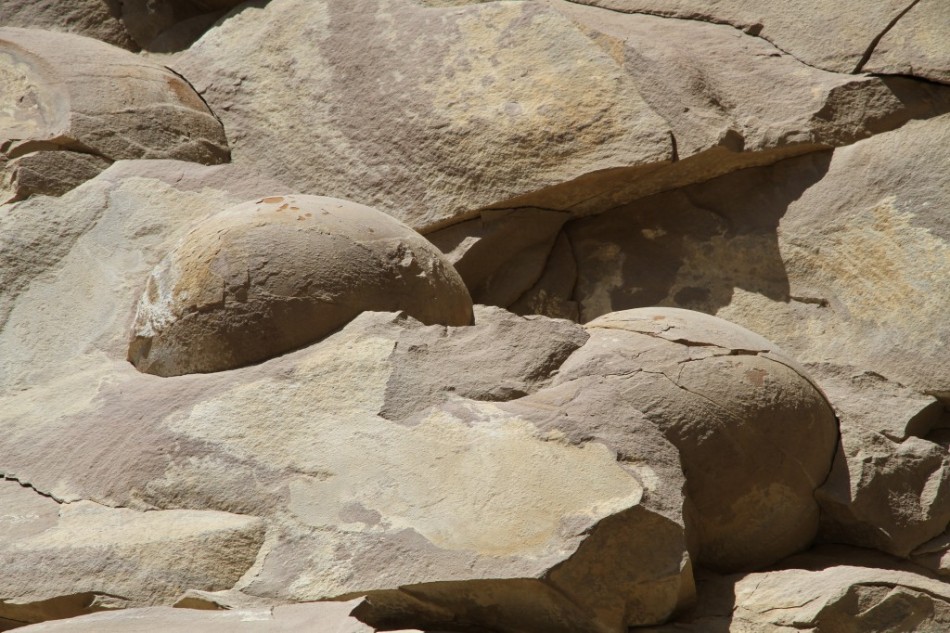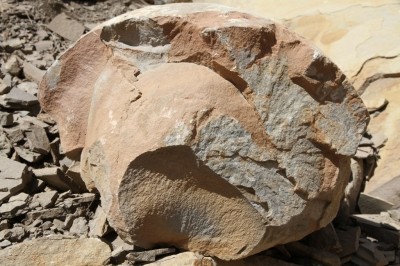Researchers Find 40 Fossilised Dinosaur Eggs In Chechnya [PHOTOS]
As many as 40 fossilised dinosaur eggs have been discovered in Chechnya, according to research by Chechen State University.
"We've found about 40 eggs so far, the exact number has not been established. There could be many more lying under the ground," the Daily Mail quoted Said-Emin Dzhabrailov, a geologist at the Chechen State University, as saying.
The 40 fossilised dinosaurs' eggs date 60 to 80 million years. Researchers made the astonishing discovery when they stumbled on smooth, oval-shaped rocks during a scientific expedition in Sharoi district of Chechnya.
When they analysed the oval-shaped rocks, they found that the rocks were actually fossilised eggs of dinosaurs. They also found that the eggs contained fossilised shells, egg and egg yolk. The eggs contained some sedimentary rocks that dated back 60 to 80 million years.
The study found that all the eggs were of different sizes, the smallest being 24 cm and the largest egg discovered at the site was more than 100 cm.
Researchers have now taken the eggs for analysis in their laboratory; they claim that by studying the eggs' physico-chemical composition they could know the exact age of the eggs.
Another paleontologist has contradicted this astonishing finding. Valentina Nazarova, paleontologist at the Moscow State University, told the Pakistani newspaper Dawn that dinosaurs lay small eggs; they do not lay such huge eggs.
"Unfortunately, it's not true. Dinosaurs laid small eggs," the Dawn quoted Nazarova as saying. "Dinosaurs didn't lay eggs while jumping about like mountain goats," he said.
Recently, another group of researchers had also discovered two fossilised eggs and bones of unique birdlike dinosaurs that lived 70 million years ago. Researchers claim that for the first time they found eggs of Alvarezsaurid near the bones of the bird.
"What makes the discovery unique are the two eggs preserved near articulated bones of its hind limbs. This is the first time the eggs are found in a close proximity to skeletal remains of an Alvarezsaurid dinosaur," said Dr Martin Kundrát, professor at Uppsala University, in a statement.




© Copyright IBTimes 2025. All rights reserved.





















